 DALLAS & JAKARTA, Nov 18, 2009 /FW/ — The third day of Jakarta Fashion Week once again featured a Moslem catwalk wherein designers like Najua Yanti proposed look for the devout Moslem woman.
DALLAS & JAKARTA, Nov 18, 2009 /FW/ — The third day of Jakarta Fashion Week once again featured a Moslem catwalk wherein designers like Najua Yanti proposed look for the devout Moslem woman.
Because of the current world headlines, the organizers of Jakarta Fashion Week had to issue this statement to the press:
The international media loves to hyphenate Indonesia as “the world’s most populous Muslim country.” While this statement is indeed factually accurate, it inadvertently puts Indonesia in a category, which quite honestly, is not viewed positively these days.
 What most people don’t know about Indonesia is that it is a nation of tolerant moderates who value diversity over anything else. Jakarta Fashion Week 09/10 aims to dispel any misconceptions the world may have of Indonesia’s Muslims.
What most people don’t know about Indonesia is that it is a nation of tolerant moderates who value diversity over anything else. Jakarta Fashion Week 09/10 aims to dispel any misconceptions the world may have of Indonesia’s Muslims.
Today’s show was proof that Indonesia’s Muslim community is not repressed or narrow minded. Three designers, Najua Yanti, Dian Pelangi and Jeny Tjahyawati, presented collections inspired by Frida Kahlo, Turkey and Russian Folk culture respectively.
Bright, vibrant colors and lush silk fabrics topped with bold accessories presented an image of a modern and empowered Muslim woman who voluntarily chooses to still respect her religious traditions.
Short, sweet and straight to the point, the press release, without actually saying it laments the fact of how the world views Islam nowadays, a perception that puts Moslems in a bad light because of the actions of religious extremists.
Here in Texas, where the whole state is still mourning the tragedy at Fort Hood because of the actions of a certain individual, the press release issued by the organizers of Jakarta Fashion Week hits home.
That a country which is halfway across the world had to issue a statement because Moslem clothes are highlighted on the catwalk underscores the damage done by religious extremists, that the sword they are wielding are cutting both ways –it also hurts their own people.
Fashion is neutral; it has no religion or political views. There are no historical facts that relate how fashion begun, we can only make a conjecture that during the days of the cavemen, when “clothes” are basically fur, which is worn to keep a human body warm, fashion begun when a cavewoman decided that one fur looks better on her than another.
In short, fashion is about feeling good and looking better and not about religious or political views. Moslem women should be able to remain devout while still look good and that is the message of the Moslem catwalk at Jakarta Fashion Week.
[MARI DAVIS]

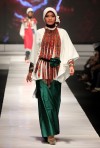






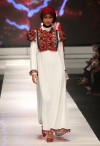




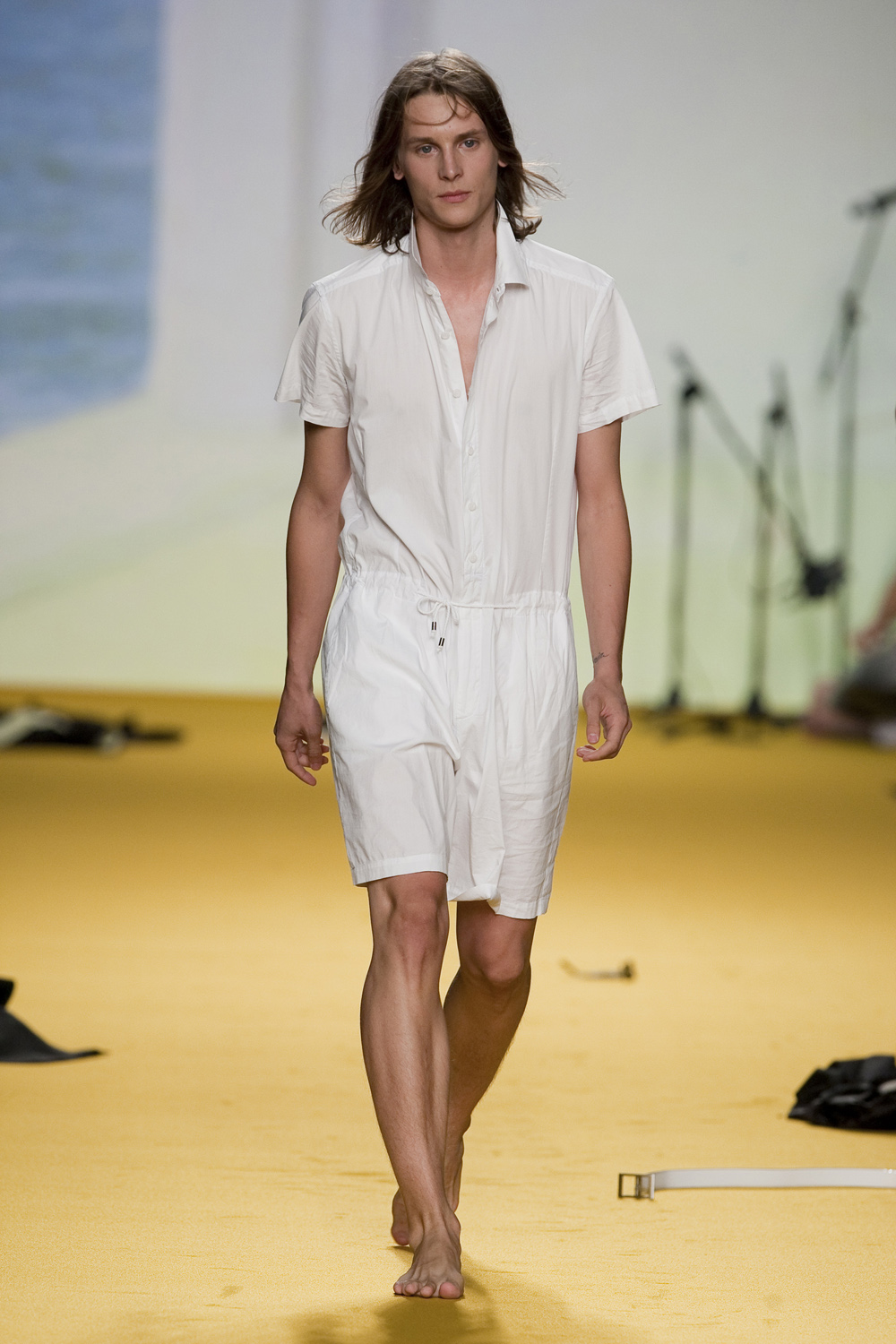
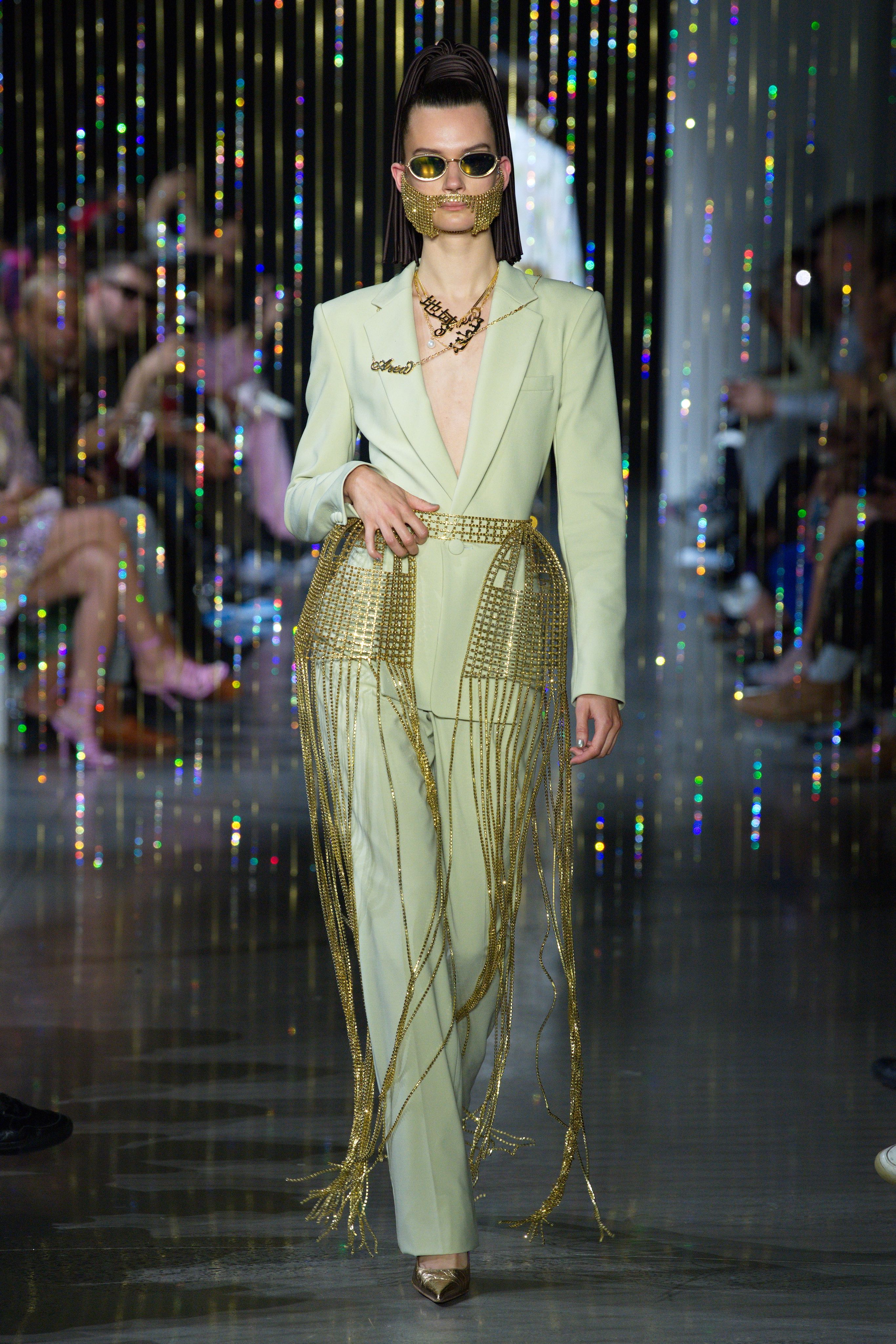
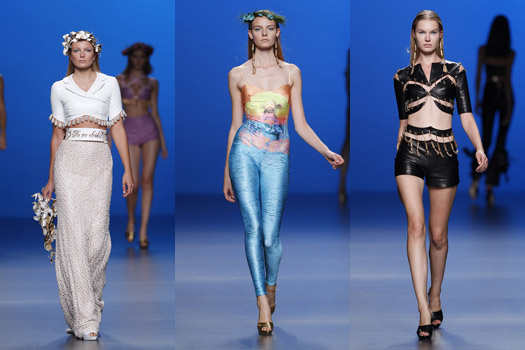
amela alic ozkaya
from bosnia